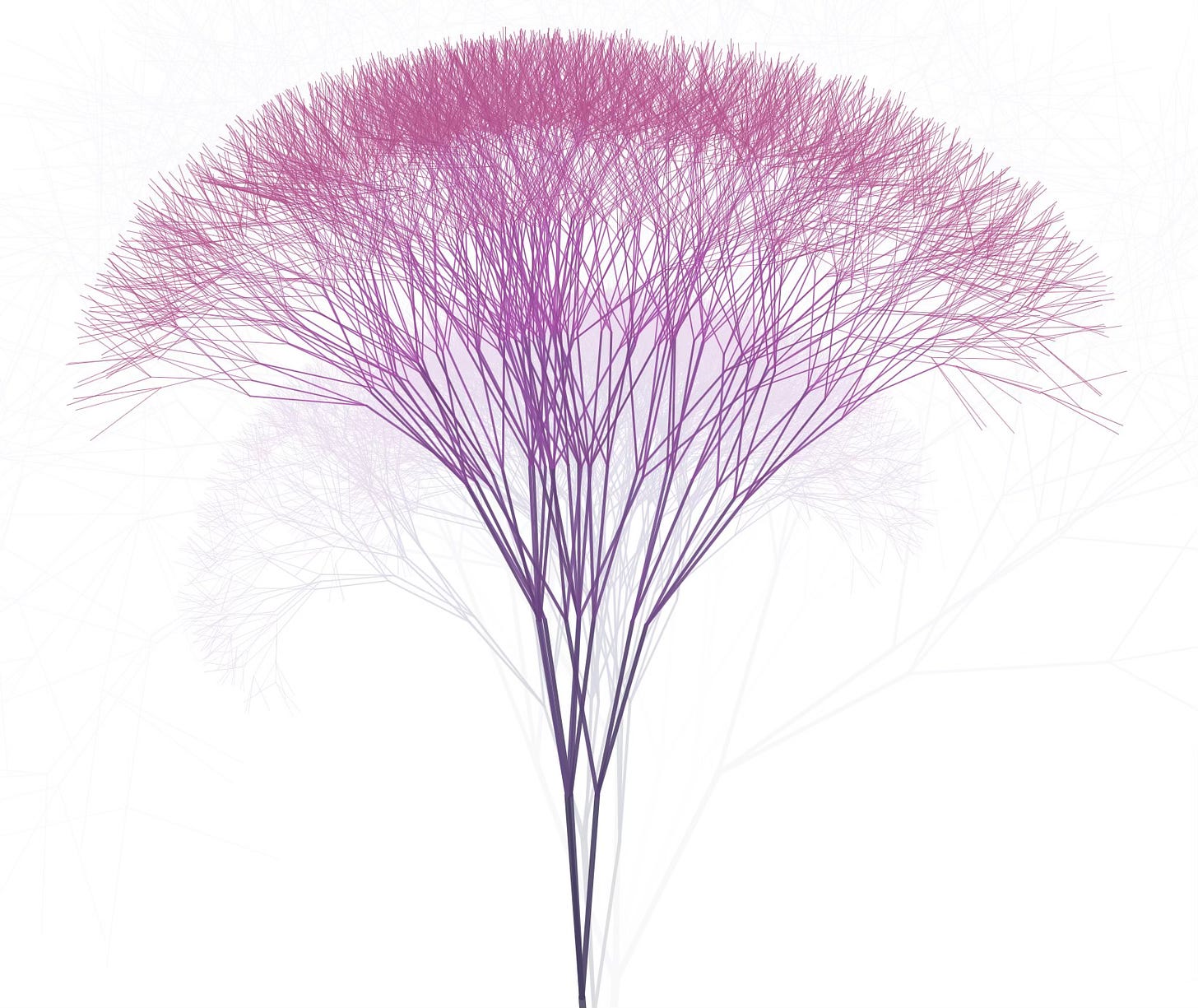On Fractals, Abolition, and Practicing New Worlds
Our March 2025 Selection
As we entered 2025, Toward Liberation took a slightly different direction, dedicating several months to a deep exploration of a specific topic—one that would advance our understanding of abolitionist praxis while responding to the current moment and its challenges. As I began to think about this direction, Emergent Strategy quickly emerged as the natural choice. I first encountered these ideas in October 2023 through Andrea Ritchie's article in Inquest, titled Fractal Abolition. The concepts resonated deeply with me, and while I began learning more at the time, it wasn’t until recent months that I started thinking more intentionally about how to apply them in my everyday experiences and interactions.
Like many of you, I’ve found the past year especially challenging—though, of course, previous years have had their own difficulties. However, the last year and a half has presented unique struggles, particularly in my practice as an abolitionist and my relationships within this work.
In October 2023, just a week before I read Andrea’s article, the upEND Movement released a statement joining others in calling for an immediate ceasefire, humanitarian aid for the Palestinian people, and an end to Israel’s occupation of Palestine. While upEND’s primary focus is abolishing the family policing system, many of us at upEND believed it was critical to express unequivocal support for Palestinian liberation, given its deep connection to the work of abolition and the broader struggle against oppression, carcerality, and violence worldwide.
As you might expect, we received some negative responses. What I didn’t anticipate was the pushback from others within the family policing abolition space. These responses ranged from “Why are you talking about this?” to “You’re hurting the movement” and “This has nothing to do with family policing abolition, stay in your lane.” Naively, I had assumed we were all on the same page.
Shortly after, a colleague in this space published an article criticizing multiple individuals—initially referred to as “anonymous acquaintances”—for statements and social media posts about Palestine, equating them with antisemitism, support for terrorism, and even celebrating violence. When I saw the article, it was clear I was one of the acquaintances being mentioned. Then, a week or so later, the author updated the piece, removing the anonymity and including my name. I wasn’t upset about being named, as my posts had always been public. However, I was bothered by the fact that I was singled out as the only person who was named while all the others who were criticized remained anonymous—it felt like an intentional effort to harm me.
I no longer share spaces with this person. The work of those spaces continues, and as far as I know, this issue has not been mentioned. This doesn’t feel right to me either, and to this day, both this experience and the reactions to the statement from upEND have made me think differently about how I engage in these spaces.
I share this to acknowledge the complexities of interpersonal relationships within our work. These relationships can be challenging and when conflicts arise, they can be difficult to navigate. There were likely better ways I could have responded to the conflicts I faced, but I chose to withdraw. I imagine many of you have faced similar conflicts.
This is why the work of Emergent Strategy is so important. As Andrea Ritchie shares in Practicing New Worlds:
We can examine the ways we engage with ourselves and each other. We can ask ourselves if our behavior is rooted in punishment, exile, and abandonment or if it offers invitations and creates possibilities to transform individual and collective conditions. We can reach toward the world we long for by using every day as a practice ground in which we generate new possibilities that can proliferate and ultimately reshape our world.
These are words I come back to again and again. And this is why I’m excited that we’re now turning to Practicing New Worlds for our March reading selection.
If you’ve noticed the graphics in some of my recent posts, you might have noticed my obsession with “fractal trees.” I first encountered the concept of fractals when I read Andrea Ritchie’s Fractal Abolition in 2023, though I didn’t fully grasp the concept at the time. As I explored further, I discovered images of fractal trees, and they instantly stuck out to me. To me, they perfectly embody the essence of Emergent Strategy—a small pattern, repeated endlessly, growing into something far greater and more beautiful than any single iteration could ever be.
This is the promise of Emergent Strategy and these are the lessons that I’m excited about exploring more deeply as we read Practicing New Worlds.
This month we’ll meet on Wednesday, March 26, from 6:30 - 7:30 PM Eastern, for our zoom discussion where we’ll be joined by very special guest Andrea Ritchie! I hope you all can join us!
I’m looking forward to engaging in this with each of you throughout the month to come.
In solidarity,
Alan




